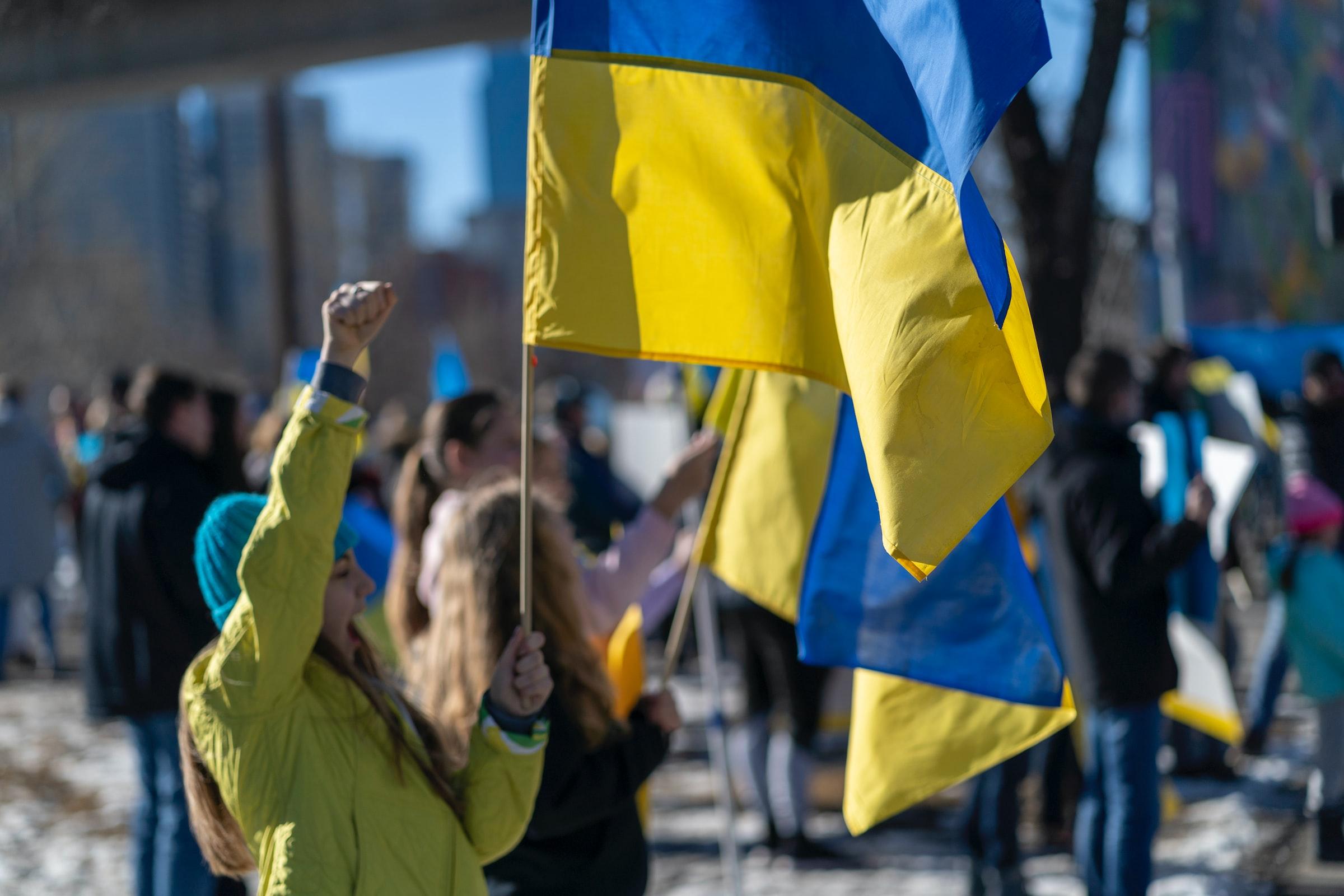The Law That Shapes Us: "Just War Theory, and the Legal Equality of Combatants, in an Era of Unjust Wars"
People:

Trenton Sewell, DPhil candidate, discusses Just War Theory for the project The Law That Shapes Us.
On May 23rd, the first Russian soldier was sentenced for actions taken during the Russian invasion of Ukraine. Vadim Shishimarin was a sergeant and squad leader in the 13th Guards Tank Regiment. As part of a retreat to join with other Russian units, his unit saw 62-year-old Oleksandr Shelipov. He was riding his bicycle home and talking on his phone. Vadim was ordered to shoot Oleksandr – the unit fearing that Oleksandr would give away their position. Vadim refused twice, but finally obeyed – firing three or four rounds – one of which hit Oleksandr. On February 28th Oleksandr died within a few dozen meters of his home at Vadim’s hands. For this, Vadim was sentenced to life imprisonment.
I take that many of my readers will see this as the just sentence. What Vadim did was gravely immoral and the fact that he was ‘just following orders’ is hardly an excuse. Actions like Vadim’s (and worse) are the embodiment of our traditional understanding of war crimes. Civilians being brutalized under the force of callous men. Their fists, bullets, bombs, and worse. But I ask my readers to imagine a different version of Vadim’s case. Suppose that Oleksandr was a soldier – who joined the Ukrainian army at the outset of the Russian Invasion to defend his home. His phone was a radio – one he could actually use to give Vadim’s unit’s location to the Ukrainian Army.
In this situation, the law of war would be silent. Vadim would have done nothing legally wrong. This is because of the ‘Legal Equality of Combatants’. Soldiers on all sides of a war are ‘legitimate targets’ so long as killing them serves some military advantage. This might seem like a common-sense notion. Just War Theory has historically distinguished between jus ad bellum (Just cause of war) and jus in bellum (Just conduct in war). The former is a moral evaluation applied to states – it is the sin of the Russian state that they have launched an unjust war. But that is irrelevant to the morality – and legality – of Russian soldiers. Their conduct is constrained by only jus in bellum. Civilians can’t be targeted but killing enemy soldiers can be done where it contributes to one’s military objectives. It doesn’t matter that furthering military aims – when severed from an evaluation about whether it’s a ‘just’ war or not – can include increasing the chance that the unjust side of a conflict wins.

Yet upon further thought – is this not strange? If I break into your home and attempt to steal your possessions and brutalize your family, and you justly defend yourself, I am not legally (or morally) allowed to kill you. I started this and my unjust provocation renders my ‘self-defence’ unlawful, and immoral. But with war, somehow, this basic truth ceases to be. The soldier who unjustly seizes territory – giving rise to a just cause of resistance – is allowed to kill those merely defending their homes. Moreover, the soldier apparently acts more rightly if he helps the war turn out for the worse – if his act helps his unjust side win. How could that possibly be right?
Criticisms of this idea have animated the ‘revisionists’ or ‘reductive individualists’, who have lately risen to prominence in Just War Theory. Academics such as Jeff McMahan, Helen Frowe, Victor Tadros, Seth Lazar etc. have argued that at minimum there is no moral equality between soldiers and the just and unjust side. Whilst Ukrainian soldiers are allowed to kill their Russian counterparts in defence of the state, the same is not true of Russian soldiers. They aren’t morally at liberty to kill because the war they partake in is unjust. Killing Ukrainian fighters is morally akin to murder.
That last claim might ruffle some feathers. Whilst a war may be unjust and we may rightly blame soldiers who fight and kill as part of it – are they really murderers? If they kill civilians – as Vadim did – then obviously but enemy soldiers are somehow less morally problematic. Yet, as explained before, this intuition is difficult to square with common-sense moral notions. Here I note the first way the law of war, and legal equality, shapes us. It arguably shapes how we think – normalizing a notion of war as a ‘boxing match’. I might favor one boxer over the other. It might even be that one boxer is in the right and ‘should’ win. But every punch landed by the unjust boxer is merely part of the game. Analogously – Russia’s act of war is unjust – but each time a Russian soldier kills an enemy, it’s a tragedy but just part of the ‘game’. But war is no game. And whilst we might be shaped by the law – I side with the revisionists in thinking that it doesn’t track any underlying moral truth.
Nevertheless, whilst revisionist’s firmly reject that soldiers on the unjust side of a war are morally at liberty to kill just fighters, they are more divided on the concept of legal equality. In fact, many have defended the legal equality of combatants. Legal equality, whilst a moral fiction, according to these theorists, is crucial for shaping the behavior of soldiers on the battlefield.

How could allowing what morally amounts to murder possibly shape behaviour for the good? Well, first the ‘just’ side doesn’t always win – but even when the unjust side does, they claim to be just. They claim their war was right all along. If the law of war allowed the prosecution and punishment of soldiers, then that fate awaits soldiers fighting for the just side who unfortunately lose or are captured. Furthermore, what incentives might we create if any soldier on the unjust side could be punished? It could remove an incentive to surrender – as punishment would await them anyway. Equally, if losing results in punishment, then soldiers might be incentivized to do anything needed to win – even killing civilians. Yes, that will get them life in prison if they lose anyway – but that awaits them regardless of their actions now does it not? Might as well do all they can to win. Considerations of this kind – concerns about how the law would make war ever so slightly better by deviating from morality – could arguably justify legal equality even if killing Ukrainian soldiers is akin to murder morally.
I am neutral as to whether these arguments are conclusive. Victor Tadros may be right – and we could seriously revise legal equality without much harm. What I hope to highlight is that the law of war doesn’t only shape how we see war. It hopes to shape the conduct of war. To make a hellish chaos of human depravity, slightly less hellish.
And so let us return to Vadim: he violated the law of war and killed a man who should have been able to return to his wife, showing that whilst the law can shape behaviour, it is no panacea. One should not take this article to make such a claim. But neither should we just dismiss the law of war. International law is often seen as lesser. Something that the good refuse to (or can’t) enforce, and that the evil refuse to abide by. Putin evidently cared not about the ‘law’ when he launched this unjust invasion or his previous wars in Ukraine, Georgia and Syria. But we need not drown ourselves in its failures – if we want the law to work, cynical apathy is no solution
Moreover, irrespective of whether the law ‘shapes us’ – we need answers to how it should treat men just like Vadim who killed Ukrainian soldiers – men and boys who should have been able to return home. The law normally would say that a man who slaughtered hundreds of innocents should face a dark fate – unless of course those innocents are in uniform. If a change in costume is really to matter so, strong justifications are needed.
Disputes between Traditionalists and Revisionists in Just War Theory, questions of how to handle soldiers fighting for the unjust side, and what rules could best shape behaviour – are not merely subjects for academics in their articles and books. They are a matter of urgent concern. The actions of Russia this year possibly herald a new era in international politics – a new era more like the old. Where borders can be changed by force and armies. In an era such as this, we should rethink the laws of war we have, discard what doesn’t serve us, and keep only that which could shape the world for the better.


